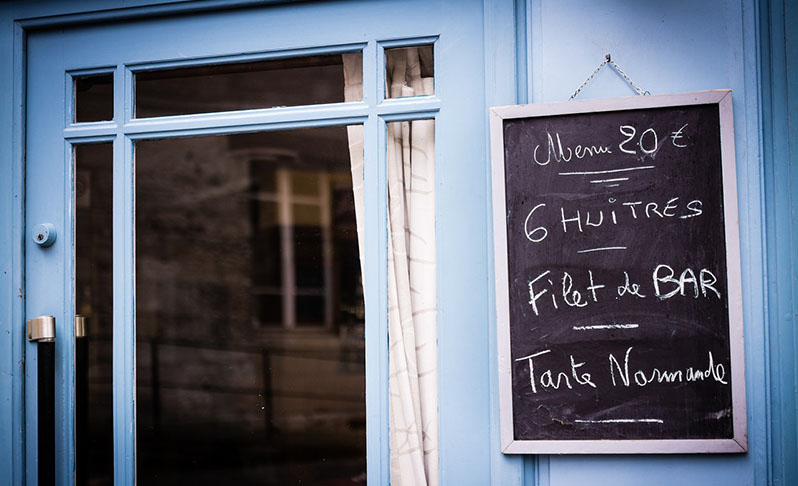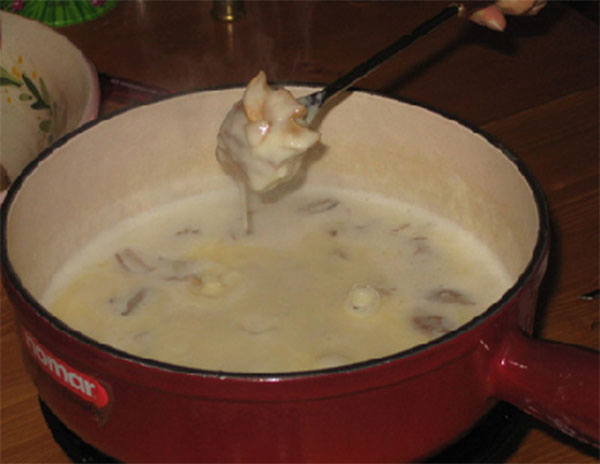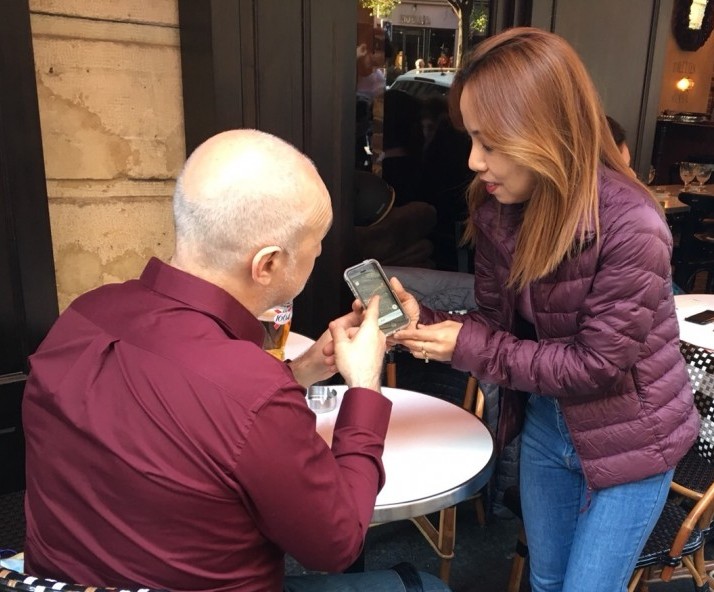
Future Tenses in French – Future Proche, Future Simple, which one to use
The future in French can be expressed in three different ways – le futur proche (aller + infinitive form of the verb), le futur simple or even at times with le présent. The choice depends mostly on whether you are talking about a planned event which will definitely take place; or whether you are thinking about something that could eventually take place one day; or if your...Read More
How to greet people in France
This French lesson on video will teach you how to greet people in French in shops, and in the day-to-day life in France. You will learn the vocabulary and the sounds related to French greetings. This French learning video is produced by Céline, a French native teacher, who manages the online French school “Learn French at Home“. In this French for beginner lesson, Céline...Read More
Swiss Cheese Fondue with Mushrooms – Fondue suisse au fromage et bolets
Cheese fondue is a specialty of Switzerland and of both Savoie and Haute-Savoie (fondue savoyarde) in the French Alps. However, the recipe we present here calls for Swiss cheeses. Fondue is most often made from cheese alone, but adding some boletus (or any other mushroom), makes it even more delicious. Learn French while cooking and enjoy this recipe in English or in...Read More
How to Learn the French language?
Are you fearful about learning French? Put your fears aside! Some of our new students at Learn French at Home tell us that they are quite intimidated in learning the language of Molière, Voltaire and Rousseau, that they consider to be a very classy and academic language. Find below some explanations on how to learn the French language by putting your fears aside… Do you know...Read More
How to Speak French Like A Native
To help you to find the best way to learn French and to speak like a French person, we are continuing our series of lists of expressions (published in French Accent Magazine) that one should and should not say if one wants to speak like a French person and be understood immediately by the French. Many of the typical mistakes made by non-native speakers are the result of translating...Read More
French Grammar Points – How to Use the Verb Visiter
Which French verb to use when you’re visiting a place, a friend, or a professional. In English, we can use the verb ‘to visit’ for a place, a person, or a doctor. However, in French, le verbe visiter is only used when a traveler is doing some sightseeing, a guided tour, or a house: Je visite la Tour Eiffel aujourd’hui. = I’m visiting the Eiffel Tower today. Demain, je vais...Read More
How to Speak Like a French Person, Not Like a Foreigner?
Through our experience at Learn French at Home teaching French to adults most of whom have either moved to France or else wish to do so, we regularly hear a number of common and very typical mistakes or what you could also call an unusual turn of phrase that most often results from translating directly and literally from English to French. These common errors are what differentiate a...Read More
How to Ask for Direction in French
If you’re wandering in the streets of Paris looking for a shop and you need to ask for directions in French, how will you ask? And even better, what if someone asks you for directions to a place you know, how will you help them? Let’s take a look at the verbs and expressions most commonly used to give simple and yet efficient directions in French. If you’re lost and cannot find La...Read More
Learn French Language With These Totally Free Lessons
Learning the French language may seem to be a difficult task if you’re just starting out. We’ve put together this list of totally awesome and “free” french language lessons just for you. Our list of free french language courses will have you speaking and understanding basic French in no time. The list contains french lessons in formats such as online tutorials,...Read More

